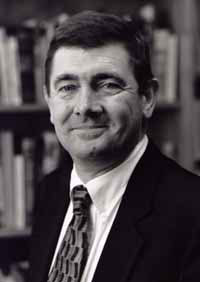Professor Thornton on Social Studies After 9/11
The events of September 11th have altered the way social studies teachers approach their subjects. Interest in the nation's past has swelled. Schools have capitalized on that interest to help students understand what happened and why, and to provide more multicultural instruction and understanding.
For example in the Laing Middle School in Charleston, South Carolina, seventh grade teacher Matey Ward completely rearranged her lesson plans following September 11th. She first taught a section on the Middle East in her class on contemporary world regions. "I wanted them to have a really good background on religion and history so they could understand what happened on September 11th," she said.
She plans to continue teaching the Middle East first in her class and incorporating current events.
This attention to different cultures shows teachers are taking a different approach than before, said Stephen J. Thornton, Associate Professor of Social Studies and Education. German-Americans were singled-out in World War I and Japanese-Americans were put in internment camps during World War II. The message these days is that those who carried out the attacks on September 11th are not reflective of Muslims, he said.
"It's an important educational contribution after decades of teaching that we have to live in a pluralistic society and tolerance is important," Thornton said. He said teachers will likely pay more attention to the role religions play in world history and more attention to civil liberties and national security issues in civics or American history.
Social studies have often been criticized for not having a lasting effect on students, Thornton said. Critics argue that it doesn't improve voter turnout or create understanding of how government works. "But the way social studies teachers are addressing the issue of September 11th will have a long-term effect," he said.
The extent to which a teacher modifies a course comes down to the teacher, who acts as an instructional gatekeeper for what books and materials students use in class, Thornton said. "It seems large-scale curriculum changes are hard to bring about and long-term changes will have to be incorporated by educating teachers themselves."
Inside TC would like to thank Allison Brice of the Charleston Post and Courier.
Published Sunday, May. 19, 2002
